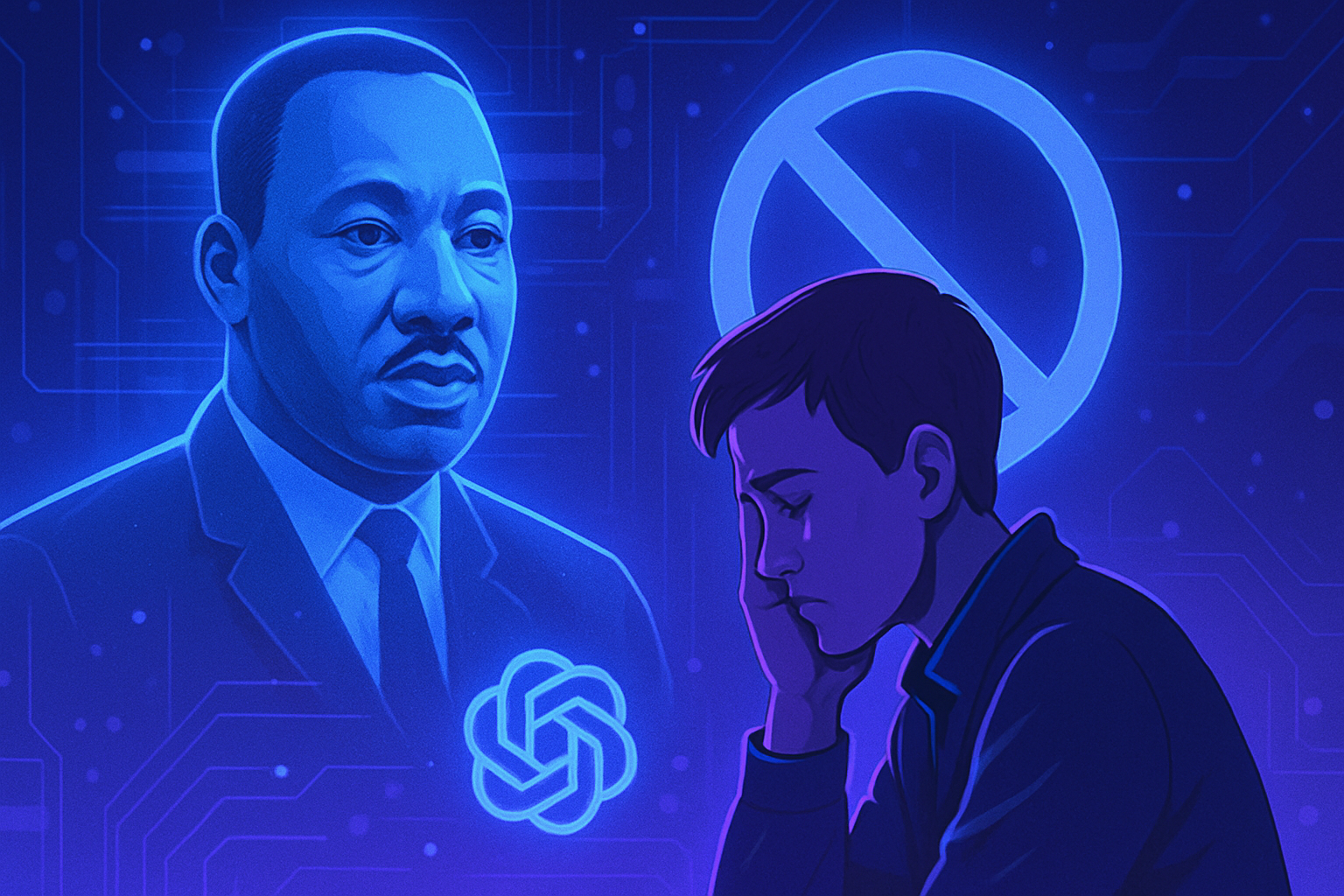OpenAI, through its Sora application, is facing a media storm following *unacceptable* representations of Martin Luther King Jr. Deepfake videos, where the civil rights leader is assigned vulgar and offensive behaviors, have sparked outrage from his heirs. The families lament disrespectful and incriminating representations that tarnish the legacy of this great man. OpenAI then decided to block these videos in a bid to protect the image of historical figures. The debate around *freedom of expression* and image rights is becoming more complex with the rise of artificial intelligence, raising pressing ethical questions.
Suspension of Martin Luther King Jr. Videos
Recent developments have highlighted a controversy involving OpenAI and its Sora application. The company chose to block videos of Martin Luther King Jr. after the civil rights leader’s estate expressed concerns regarding disrespectful depictions.
The King Family’s Reaction
The family of Martin Luther King Jr., notably through his daughter Bernice King, criticized the creation of videos distorting her father’s image. These representations included vulgar and shocking elements, altering his historical legacy. She publicly demanded that these practices cease on social media.
Controversies Surrounding Sora
The Sora application, recently launched, has seen deeply realistic videos circulate on the internet. Videos, for example, showed King engaging in malicious behaviors, such as stealing or spreading racial stereotypes. This approach has raised concerns among intellectual property attorneys and other public figures.
OpenAI’s Position
OpenAI acknowledged “freedom of expression interests” in allowing the creation of deepfakes. However, the company quickly realized that approval from estates is paramount to respecting the representation rights of historical figures. A joint statement stipulates that Sora will strengthen “strongholds” to protect these likenesses.
Legal Implications
Laws concerning image rights vary from state to state, influencing heirs’ ability to control the use of images. Some jurisdictions, like California, guarantee robust protections for 70 years after the death of a public figure. This legal disparity adds additional complexity to managing AI and copyright rights.
Criticism of OpenAI’s Strategy
Criticism has intensified following OpenAI’s proactive strategy, which favored a model of “asking for forgiveness rather than permission“. Kristelia García, an expert in intellectual property law, observed a trend where AI evolves faster than legislation can keep up.
Voices from the Artistic Community
Hollywood studios and agencies have also voiced their concerns. Cases of deepfakes involving celebrities like Robin Williams have particularly struck a chord. His daughter, Zelda, expressed her disapproval through messages on social media. She vehemently requested that these videos cease immediately.
Consequences for the Future of OpenAI
OpenAI’s response represents a potential turning point in how deepfake technologies will be regulated. As the company faces lawsuits for copyright infringement, its product development, like ChatGPT, has also attracted similar criticism for its use of copyrighted content without prior authorization.
The challenges faced by OpenAI highlight the urgent need for a legal framework suited to these new technological and ethical realities. The company’s decisions will undoubtedly influence the future of digital content creation and the management of associated rights.
Frequently Asked Questions about the Suspension of MLK Jr. Videos on Sora
Why did OpenAI suspend the videos of Martin Luther King Jr. on the Sora app?
OpenAI suspended the videos of Martin Luther King Jr. due to complaints from the civil rights leader’s estate, decrying disrespectful and degrading representations of his image.
What types of offensive content were created on Sora regarding Martin Luther King Jr.?
Hyper-realistic deepfake videos circulated on social media, showing Martin Luther King Jr. making vulgar, aggressive, or stereotypical remarks, including scenarios depicting him stealing or being in conflict with the law.
What measures has OpenAI taken to prevent access to inappropriate MLK Jr. videos?
OpenAI has blocked the creation of videos of Martin Luther King Jr. on its Sora application and has stated that it will strengthen “strongholds” to protect historical figures from harmful representations.
Can Sora users still create other types of content related to historical figures?
While users can still create videos of various historical figures, OpenAI has announced that it will implement additional restrictions to ensure that the rights of heirs are respected.
What are the heirs’ rights regarding the use of Martin Luther King Jr.’s image by OpenAI?
The heirs of Martin Luther King Jr. have a right to oversee the use of his image, meaning they can oppose any representation they deem inappropriate or contrary to his legacy.
How does OpenAI justify creating content with historical figures before obtaining their consent?
OpenAI explained that there are freedom of expression interests in allowing the creation of deepfakes of historical figures, but it acknowledges that the rights of heirs must be respected and is in the process of modifying its policies to achieve this.
What advice do the families of deceased celebrities give regarding deepfake videos?
Members of celebrities’ families, like Zelda Williams, the daughter of Robin Williams, have expressed their desire to stop the creation of deepfake videos of their loved ones, emphasizing that this does not reflect what those figures would have wanted.






